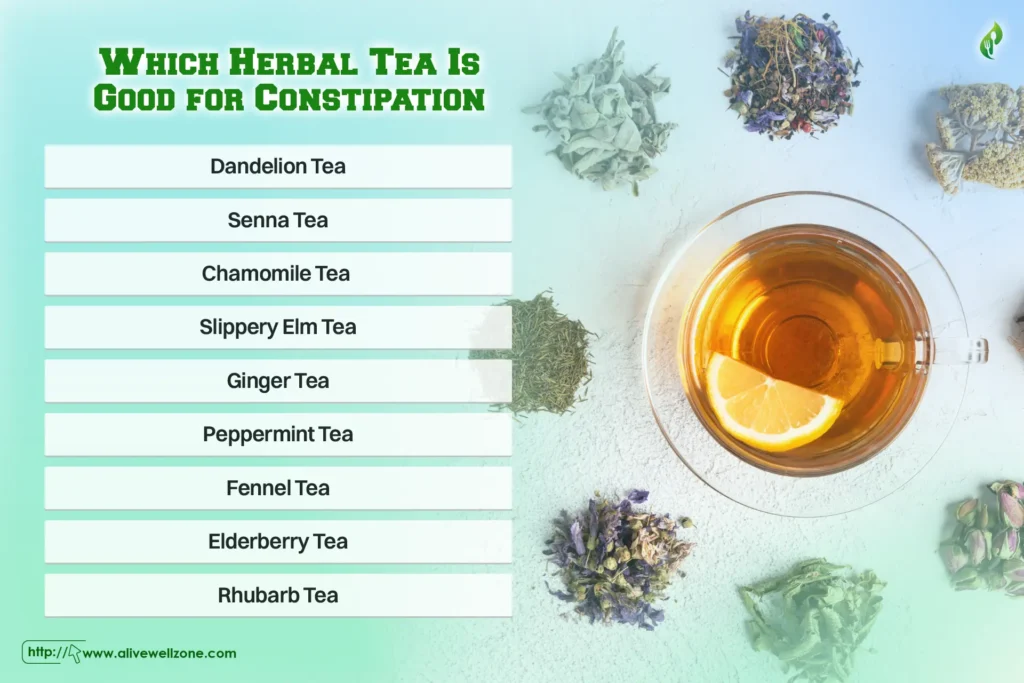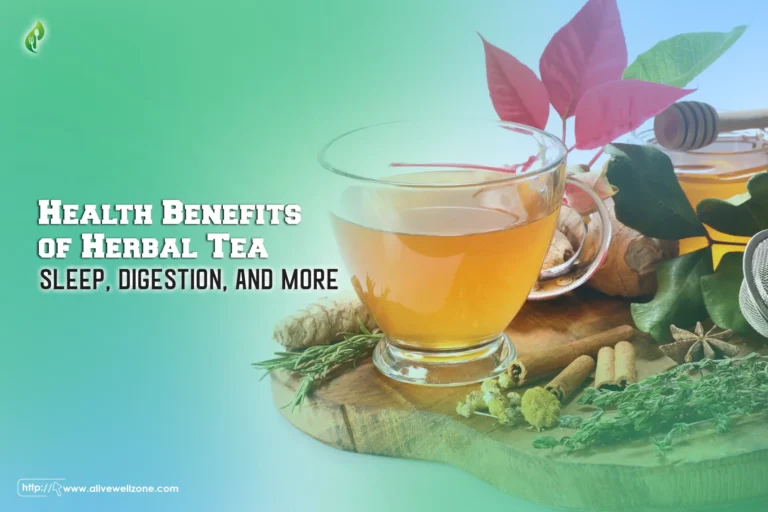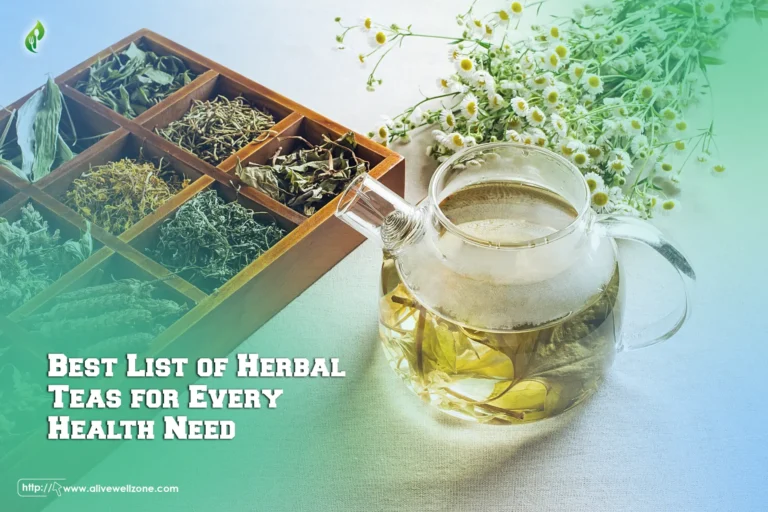
Last Updated on July 3, 2025 by Helena Akter
We all know herbal tea for its calming properties. But did you know it can also help relieve constipation? Yes, the right tea can provide you with a natural and gentle solution. So, what herbal tea helps with constipation?
Herbal teas like dandelion, senna, chamomile, slippery elm, ginger, and peppermint can relieve constipation by easing digestion or softening stools. However, you should use them wisely and consult your doctor to avoid possible risks or medication interactions.
So, let’s explore these popular herbal teas that have been traditionally used to soothe digestive troubles. We’ll discuss their potential benefits, how they work, and any precautions to consider.
Key Takeaways
- Constipation Symptoms and Risks: Constipation often causes hard stools, stomach pain, and bloating. Serious cases may require medical attention if symptoms like blood in bowel movements or sudden weight loss appear.
- Herbal Tea Remedies: Dandelion, senna, chamomile, and other herbal teas can ease constipation. Each tea has unique benefits, like relaxing digestive muscles or bulking up stool, but may also have side effects or drug interactions.
- Cautions and Usage: Herbal teas should be used carefully. Overuse or allergies may worsen conditions. Consult a doctor, especially if you’re pregnant, on medication, or have underlying health issues.
- Lifestyle Adjustments: Drinking plenty of water, eating fiber-rich foods, and regular exercise are vital. If these measures don’t help, or if fiber worsens the issue, seek medical advice.
What are the Symptoms of Constipation?
Constipation can cause several symptoms, including —
- Hard, dry stools
- Straining to have a bowel movement
- Feeling blocked or unable to fully empty your bowels
- Needing help to empty your rectum
- Stomach pain
- Bloating and nausea
Which Herbal Tea Is Good for Constipation?
There are a lot of natural herbal teas for constipation around the world. We’ll discuss the tried-and-true ones that have delivered results.

1. Dandelion Tea
Dandelion root contains inulin. It’s a type of fiber that can help soften stools and make bowel movements easier. In fact, a recent study showed that inulin might be helpful, especially for children, as it can add bulk to stools.
However, the study was done on supplements, not dandelion herbal tea for constipation relief. The effects of drinking the tea could be different.
That said, dandelions can also have a downside. It can act as a diuretic, making you urinate more frequently. It could lead to dehydration, which can, in turn, worsen constipation.
So, if you decide to try dandelion tea, you must drink plenty of water.
Caution
If you have kidney or gallbladder issues, you should be cautious about using dandelion. It might worsen these conditions. Dandelion can also interfere with certain medications, such as —
- Antacids
- Diuretics
- Blood thinners
- Some diabetes treatments
So, check with your doctor before taking dandelion.
2. Senna Tea
Senna tea is a common natural remedy for constipation. It’s made from the dried parts of the Senna alexandrina plant. These plant parts have compounds called glycosides, which help your body have bowel movements more easily.
Besides, a recent study showed that senna is an effective laxative than over-the-counter medicine to help you poop. But senna tea might not be as strong as senna pills because it has less of the active stuff.
If the tea doesn’t work, you should ask a pharmacist for advice on other options.
Caution
Unlike other teas that calm your digestive system, senna tea actually stimulates it. It can lead to bowel movements but may also cause cramps. Plus, don’t use it frequently as it can make your body rely on it.
So, you might find it difficult to have a bowel movement without it. To stay safe, use it for a short time only.
3. Chamomile Tea
Well, we all know that Chamomile tea is a well-known relaxing and soothing drink. But beyond its calming properties, this floral tea is also helpful for digestion.
In addition, studies have shown that chamomile can soothe the muscles in your digestive system. These muscles, in turn, help move food through your intestines. By relaxing these muscles, chamomile can also reduce bloating, gas, and cramps.
Plus, you can use chamomile tea to relieve pain related to digestive troubles.
Caution
Everyone reacts differently to chamomile. If you drink too much chamomile tea or use excess chamomile flowers, you might feel side effects like vomiting or feeling sleepy.
Also, people who are allergic to plants in the daisy family, like marigolds or ragweed, may also be allergic to chamomile. So, drinking chamomile tea could cause an allergic reaction in these individuals.
4. Slippery Elm Tea

When it comes to herbal tea remedies for constipation, Slippery elm is a traditional one. It contains a sticky substance called mucilage and fiber. When mixed with water, mucilage turns into a gel-like material.
And this substance can help make your stool bulkier and easier to pass.
Plus, a study from 2021 found that slippery elm can increase the production of mucin, a substance that lines the digestive tract. It helps to lubricate your intestines.
Caution
Slippery elm is generally considered safe. However, you must be aware of potential side effects and risks, especially when trying it for the first time.
You might have an allergic reaction if you put slippery elm on your skin.
5. Ginger Tea
Ginger tea is a popular herbal tea that helps with constipation along with soothing bloating, gas, and nausea.
A 2023 study examined people with multiple sclerosis (MS). MS is a disease where your body’s immune system damages the nerve cells. The study found that taking ginger supplements for 3 weeks helped to relieve constipation in these individuals.
But these findings might not be true for ginger tea or adults without MS. We need more studies to be sure.
Caution
A 2019 study found that ginger can sometimes cause mild side effects, but it’s not common. In fact, taking more than 5 grams of this supplement daily might cause side effects like —
- Heartburn
- Stomach pain
- Diarrhea
6. Peppermint Tea
For a long time, people have used peppermint to help with stomach problems. Studies show that menthol antispasmodic, a substance found in peppermint, can relax the muscles in your digestive system.
This relaxation can help relieve gas, cramps, and make it easier to go to the bathroom regularly.
Moreover, peppermint oil can help soothe an upset stomach and may ease the symptoms of irritable bowel syndrome (IBS).
Caution
If you’re pregnant, breastfeeding, or have young children, you must talk to a healthcare provider before drinking peppermint tea. They can advise you on whether it’s safe for you and your child.
Plus, if you’re allergic to peppermint, avoid drinking peppermint tea. Like other food allergies, a peppermint allergy can cause serious reactions, including a life-threatening condition called anaphylaxis.
7. Fennel Tea

Fennel is a plant often used in traditional medicine to help with digestion problems like bloating, gas, and constipation. A recent small study showed that older people who drank tea with fennel and rose for four weeks had less constipation.
In fact, the results were similar to the effects of a common medication, polyethylene glycol, often used to treat constipation. It suggests that fennel and rose could be just as effective as this drug.
However, since this study was small, it’s hard to say if fennel herbal teas to help with constipation would work for more people or younger adults.
Caution
Pregnant or breastfeeding women should avoid fennel. Fennel can also interact with some medicines, such as —
- Ciprofloxacin (Cipro)
- Tamoxifen
- Birth control pills
- Hormone replacement therapy
If you’re taking any medication, talk to your doctor before starting this new one.
8. Elderberry Tea
Elderberry has been used for centuries as a natural remedy for flu, colds, and constipation.
In fact, a 2014 report from the European Medicines Agency mentions that many old medical books recommend elderberry tea and syrup to relieve constipation.
However, we don’t have any recent strong evidence that elderberry tea helps with constipation. Also, scientists don’t understand exactly how it might work.
Caution
Elderberry extract is likely safe for up to 12 weeks. That said, we need more research to know if it’s safe for longer periods.
Moreover, don’t eat elder leaves, stems, or unripe elderberries. They can make you sick. Cooked elderberries are generally safe to eat, but raw, unripe berries can cause vomiting, nausea, or severe diarrhea.
9. Rhubarb Tea
For many years, Chinese medicine has used rhubarb root to improve health.
Recent studies suggest that rhubarb can help relieve constipation. It does this by strengthening muscles in the intestines and increasing mucus production, which makes it easier to pass stool.
Keep in mind that most studies use rhubarb extract, a more concentrated form. But if you’re constipated, rhubarb tea is a good place to start. It’s a less intense way to see if rhubarb helps you.
Caution
This tea is not for pregnant women or children under 10 years old. You should also avoid this tea if you have —
- Stomach pain
- Crohn’s disease
- Nausea or vomiting
- Bowel blockage
- Irritable bowel syndrome (IBS)
- Colitis
Also, people who take medications such as digoxin, corticosteroids, diuretics, or anticoagulants should avoid drinking this tea.
What are Other Treatments for Constipation?
Along with herbal teas that help with constipation, you can try —
- Stay hydrated throughout the day.
- Engage in regular physical activity, like swimming or walking.
- Practice relaxation techniques, such as yoga or meditation.
- Include plenty of vegetables, fruits, and whole grains in your meals.
Remember, if increasing fiber seems to worsen your constipation, it’s important to consult a doctor.
When to Call the Doctor for Help?
Occasional constipation is usually not a big deal. However, if it happens often or comes with the following symptoms, it’s best to consult your doctor —
- Sudden, sharp stomach cramps that make it hard to pass gas
- Blood in your bowel movements
- Pain in your bottom
- Severe stomach pain and bloating
- Losing weight without trying
- Constipation that switches with diarrhea
If laxatives don’t help after a few weeks, talk to your doctor.
Final Words
To sum up, what herbal tea helps with constipation? Well, there are several effective options namely dandelion, senna, chamomile, slippery elm, ginger, and peppermint. Each brings unique relief, whether by softening stools or easing cramps and bloating.
However, even natural remedies come with potential risks or may interfere with medications. So, you must pay attention to how your body responds and check with your doctor if you have any concerns.
Moving forward, always take a gentle, thoughtful approach to manage constipation. Stay hydrated, add these teas to your routine, and keep your diet balanced for better digestion.
FAQs
Does herbal tea help with constipation?
Yes, herbal tea can help relieve constipation. Certain herbs used in these teas can stimulate your digestive system. If you’re pregnant, have health issues, or take medication, you should talk to a doctor before using teas with medicinal properties.
What is the best herb for constipation?
The best herb for constipation is aloe. It contains aloin and aloe-emodin, which work as effective, natural laxatives. Another herb, frangula, provides relief with compounds like frangulin that encourage smoother digestion.
What is the 7 second poop trick?
The 7-second poop trick involves a simple morning routine to jumpstart your digestive system. As soon as you wake up, drink a glass of room-temperature water. Then, stretch your body and try a wind-relieving yoga pose. While holding the pose, breathe deeply and relax.
These steps can help your body get ready for a smooth, easy bowel movement.







